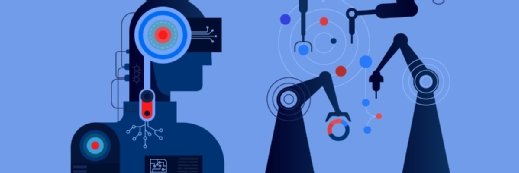
Getty Images
Google, Fitbit Launch Data-Driven Remote Patient Monitoring Solution
Google and Fitbit have launched Device Connect for Fitbit, a solution aimed at helping healthcare providers gain insights from wearable data.
Google Cloud and Fitbit Health Solutions have launched the Device Connect for Fitbit solution, which aims to give healthcare organizations a more holistic view of patients outside clinical settings using data from wearable devices.
Through the launch of the solution, Google seeks to “help people live healthier lives” and accelerate time to insights for healthcare organizations while ensuring security and privacy, according to a company blog post. Participating health systems will have access to consenting patients’ wearable data through the Fitbit Web API, which will allow users to control what data they share.
The data, which includes temperature, heart rate, oxygen levels, sleep, stress, and activity, is then filtered through a data connector with automated normalization and standardization capabilities for analytics via Google Cloud BigQuery. From there, health systems can build and customize analytics dashboards and artificial intelligence models.
With these tools, the solution is designed to help healthcare organizations support chronic disease management, drive population health impact, and advance clinical research, according to the announcement. Health systems will also gain insights that can help them support health equity and patient engagement pre-and post-surgery.
Cardiologists at The Hague’s Haga Teaching Hospital in the Netherlands are currently piloting Device Connect for Fitbit. Under this collaboration, the hospital is launching a study examining the solution's efficacy in aiding the early identification and prevention of vascular disease.
The study, known as ME-TIME, will follow 100 individuals identified as at-risk of developing heart disease. These patients will be given a Fitbit Charge 5, the company’s latest activity and health tracker that claims to provide ECG monitoring, to wear at home.
Encrypted data from consenting users will then be sent from these devices back to the hospital. According to a Google blog post outlining the study, the data, which includes metrics such as how much physical activity the patient is undertaking, will be accessed by hospital-approved clinicians and data scientists for monitoring alongside other clinical information gathered about the patients at previous consultations.
The data will also be compared to the hospital’s other relevant cardiovascular data to study potential patterns and abnormalities associated with various heart conditions. Using the insights gathered, the hospital hopes to bolster disease forecasting and prevention, including leveraging predictive analytics to help identify early signs of life-threatening conditions such as heart attacks or stroke, so doctors can intervene with preventive measures before symptoms arise, according to the blog post.
“Health is a precious commodity. You realise that all the more if you are struck down by an illness. If you can prevent it or catch it in time so that it can be treated, you have gained a great deal," said Ivo van der Bilt, MD, PhD, of Haga Teaching Hospital, who has been leading the collaboration, in a press release. “Digital tools and technologies like those provided by Google Cloud and Fitbit open up a world of possibilities for healthcare and a new era of even more accessible medicine is possible.”






